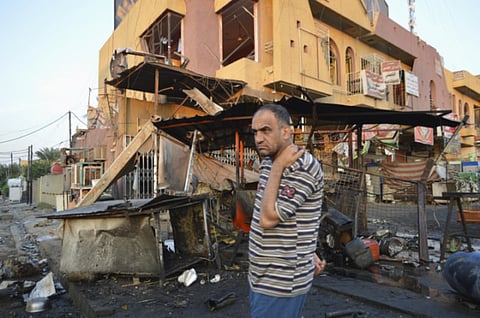To predict the future, look to the past
What we are witnessing today in the Arab world may not continue as it is

It is hard for the individual, and probably the state, to think seriously about the future. People usually let things take their course, rather than intervene to direct things to towards the ends they desire. This is especially true when it comes to political events. Predicting the future is very rare in our cultural life and if it does occur, we usually paint a vivid and pleasant picture of the future to comply with the political needs of those in power. I just finished reading a book The Next 100 Years, a forecast for the 21st century, by George Friedman. The book is quite interesting, although it mainly evaluates western history and delves into what will happen in the western hemisphere in the future. But what was interesting is the methodology the writer adopted — one that I am going to try on recent Arab history, and endeavour to predict what will happen in the next 50 years.
The right way to understand, and to be able to predict the future is to look to the immediate past. Friedman looked at events in Europe in the 20th century and divided it into time periods of 20 years. He found that in 1900, Europe was at peace and prosperous, given its superiority over other rival powers, and its advancement in technology. The emperors and kings enjoyed power not only within their realms but also far beyond their national territory. Nobody could have predicted at the time that war could break out. And even if it did, they would have thought it would be short-lived and geographically limited. This, as no one in their right mind would sacrifice wealth and property they enjoyed.
Threatening the entire world
However, 14 years later, the devastating First World War broke out, and claimed the lives of millions. Emperors fell, countries were in ruins, Germany was eventually brought to its knees. But 20 years later, Germany was sweeping the Continent, and it appeared that no power could match its military might. It was threatening the entire world. But a few years later, things again changed dramatically, with the end of the Second World War. Germany came under occupation, the Soviet Union was rising as superpower, the United Kingdom’s power declined sharply, China was rising as a major power, and Japan, too, was under occupation.
If we use this methodology, and try to look to the Arab world, not for a whole century, but for about half of that time, say from the 1950s onward, we can really predict the direction of the future. The 1950s saw a wave of military officers taking charge of governments in Arab countries like Egypt, Iraq, Sudan, Libya and Yemen. Democracy was unthinkable and the emphasis was on the struggle to get rid of Israel. But a few decades later, there was a peace treaty between Israel and some Arab countries. And some sort of democracy was coming to the region in some countries. From Morocco to Kuwait, there was a liberal attitude towards life. Besides, there was prosperity mainly derived from oil revenues that benefitted oil producing countries directly and non-oil producing countries through the workers they sent to growing markets, and the aid and handouts they received. Also, political Islam came to be a force in the region, starting from Sudan in the early 1980s eighties. In these 50 years or so, many wars have broken out either between states or within the state. Apart from the Arab-Israeli wars, there were the civil conflicts in Lebanon, Iraq, Syria and Yemen.
The region suffered as well from semi–international wars, like the Iran-Iraq War, and the two Gulf Wars. All this has resulted in a number of violent non-state actors everywhere in the region.
Where will this lead us? I think there are two major points. First, it should not be taken for granted that what we are witnessing today will continue as it is. There will be change, whether we like it or not, due to the mobility of the people, and the effect of globalisation. The second point is that change can be internal or external. Big players both in the region and beyond can bring about changes. The fall in the price of oil can do so, too. We need to look to the future in a strictly rational way, to discover the road ahead. This will not be possible until we read about our past in an unbiased and rational way. The big question is: will we be able to do that?
Mohammad AlRumaihi is a professor of political sociology at Kuwait University. You can follow him on Twitter at www.twitter.com/@rumaihi42



